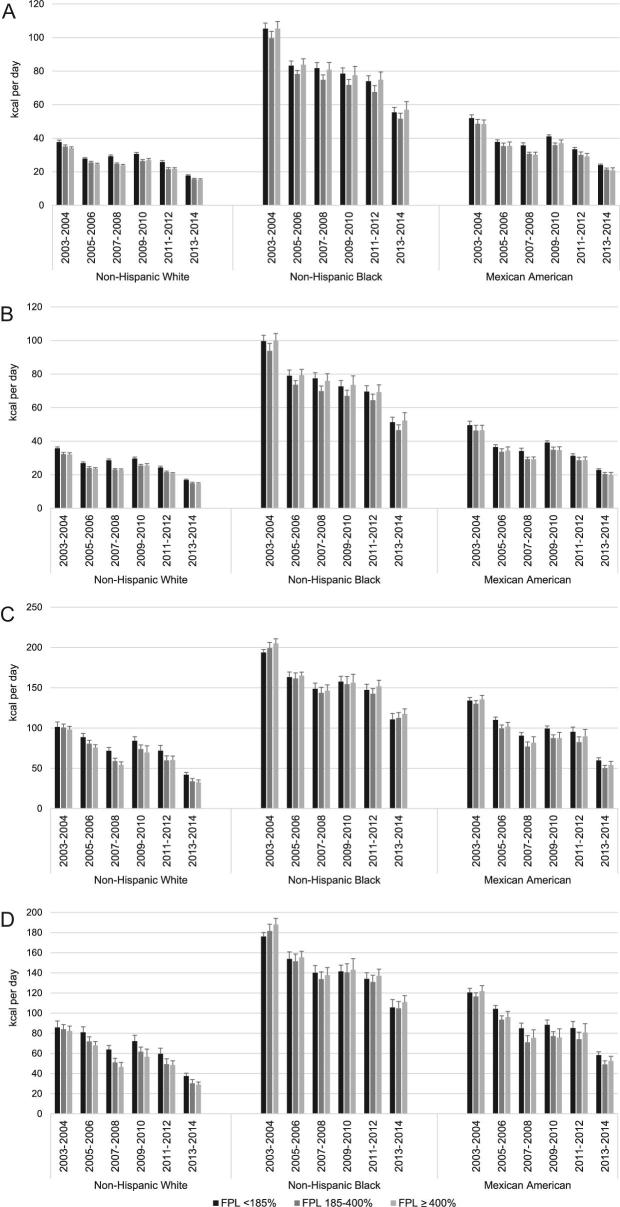FIGURE 2.
Fruit drink intake by race/ethnicity and household income as a percentage of poverty in participants aged 12–18 y (usual intake quantile regression results). Fruit drink intakes of males aged 12–18 y (50th percentile) (A), females aged 12–18 y (B) (50th percentile), males aged 12–18 y (90th percentile) (C), and females aged 12–18 y (90th percentile) (D). Values are predicted intakes from multivariable-adjusted quantile regression (for details, see Supplemental Table 4), which found significant (*P < 0.05, †P < 0.01, ‡P < 0.001) associations with the following. Panels A and B—50th percentile, fruit drinks: 1) main effects: NHB*; male sex*; survey waves 2005–2006†, 2007–2008†, 2009–2010*, 2011–2012†, 2013–2014‡; 2) income interactions: NHB × income >400% FPL*; 3) survey wave interactions: NHB × 2005–2006†, 2007–2008‡, 2009–2010‡, 2011–2012‡, and 2013–2014‡; MA × 2007–2008†, 2011–2012†, and 2013–2014‡; 4) other interactions: male × 12–18 y†, NHB × male†, NHB × 12–18 y†. Panels C and D—90th percentile, fruit drinks: 1) main effects: NHB‡, MA†; male sex‡; survey waves 2005–2006*, 2007–2008‡, 2011–2012‡, and 2013–2014‡; 2) income interactions: income ≤185% FPL × 2007–2008*, MA × >400% FPL*, NHB × >400% FPL†, NHB × <185% FPL*; 3) survey wave interactions: male × 2013–2014†; NHB × 2005–2006*, 2009–2010*, 2012–2012*, 2013–2014†; MA × 2009–2010‡ and 2013–2014‡; 4) other interactions: NHB × 12–18 y‡, MA × 12–18 y‡. FPL, federal poverty level; MA, Mexican American; NHB, non-Hispanic black.

